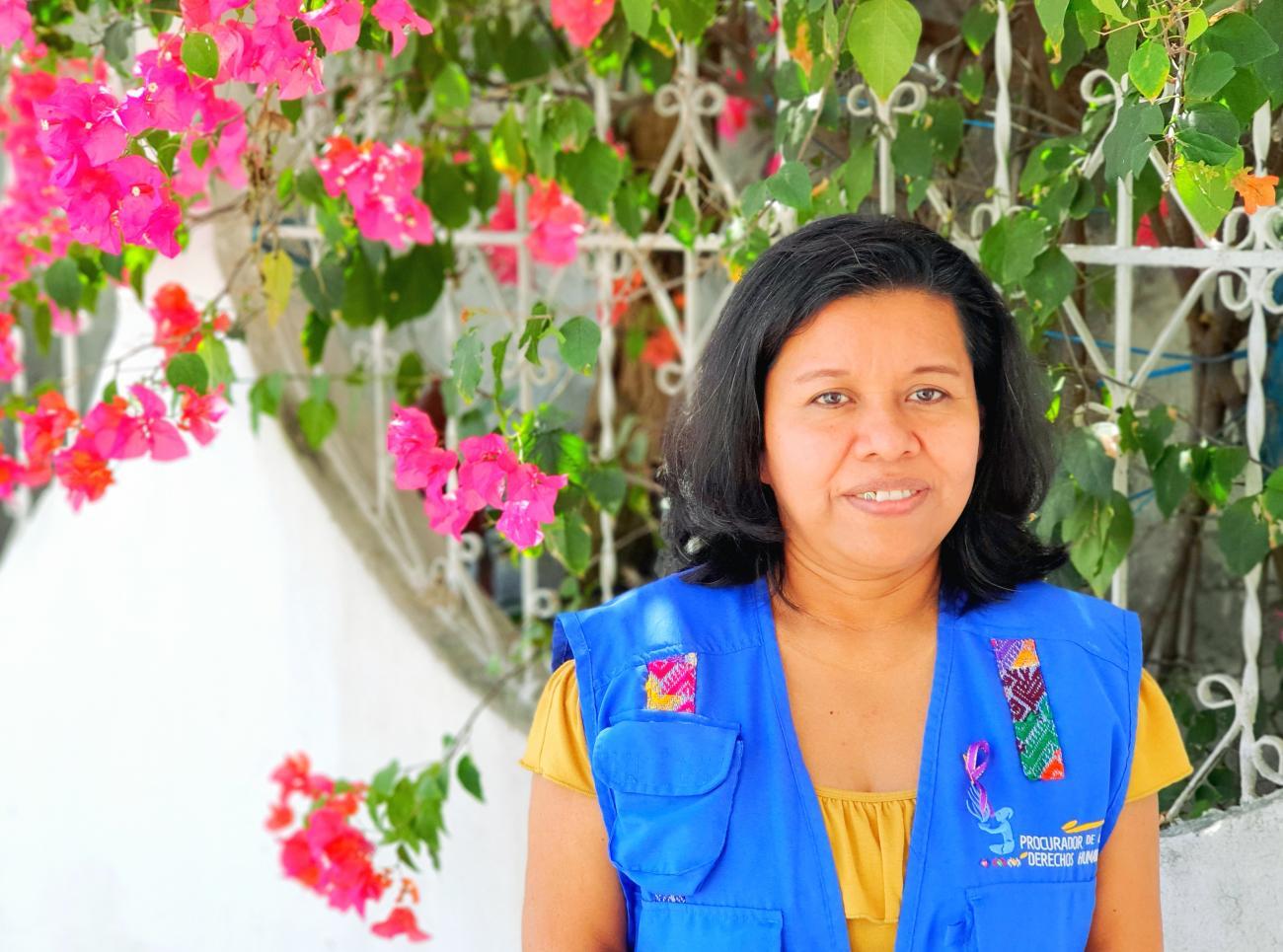A life after receiving refuge

From refugee to human rights defender of others in her own country.
Natalia has dedicated her life to fighting for human rights. The internal armed conflict in Guatemala forced her family to leave the country and apply for refugee status in Mexico. Many years later, they returned to Guatemala. Natalia is the Officer from the Mobile Unit Human Rights Ombudsman’s Office in Petén, where she provides support to the refugee population and their host communities.
When Natalia was 5 years old, the internal armed conflict in Guatemala forced her family to move in search of protection. “You had to save your family and life. We crossed into Mexico, to a place where we didn't know, we had no contacts. Fortunately, people were very solidarity and gave us refuge,” she recalls.
In the new community, they found support from locals and Guatemalans who had fled like them. Later, Natalia and her family were moved to a camp, where they lived for 15 years. “Life there was beautiful and sad. Sad because you leave your country, your dolls, your toys. But nice because you felt safer.”
In 1995, Natalia's family decides to return to the country. She was 20 years old, when returns with many dreams and the hope of being able to continue her studies. “I think it is necessary for women to study and fight for our dreams. Even if they are fulfilled when we are 60 years old,” she says.
Through the learnings of her father, who was always involved in community issues, she found the passion to fight for human rights. Natalia finished her high school studies and registered as a student of Legal and Social Sciences. “I wanted to be a teacher. But I saw the necessity for women lawyers in the country due to issues such as the defense of women who suffer violence. That motivated me to study law,” she says.
She graduated with a degree in Legal and Social Sciences, and this has opened doors for her to continue fighting for human rights. Currently, Natalia works as the Advocacy Officer of the Mobile Unit of the Human Rights Ombudsman's Office (PDH).
In addition to serving communities far from services usually found in urban centers, the Mobile Unit, PDH supports refugees and people in need of international protection in host communities in the department of Petén. “When my family left, we couldn't find anywhere to go. The same thing happens to people. Refugees just leave their communities without knowing the right to refuge or that they can ask for protection in Guatemala. My job is to explain this to them, so they can make the best decision,” she says.
Translated by: Jackeline Lemus
University intern - UMG

